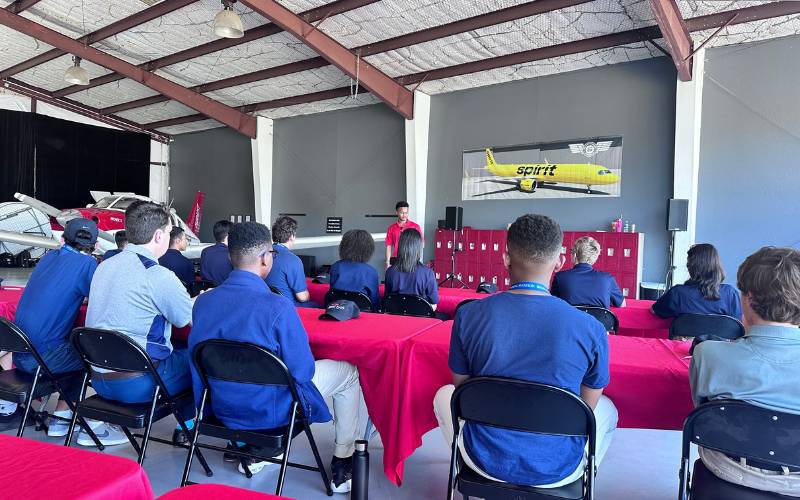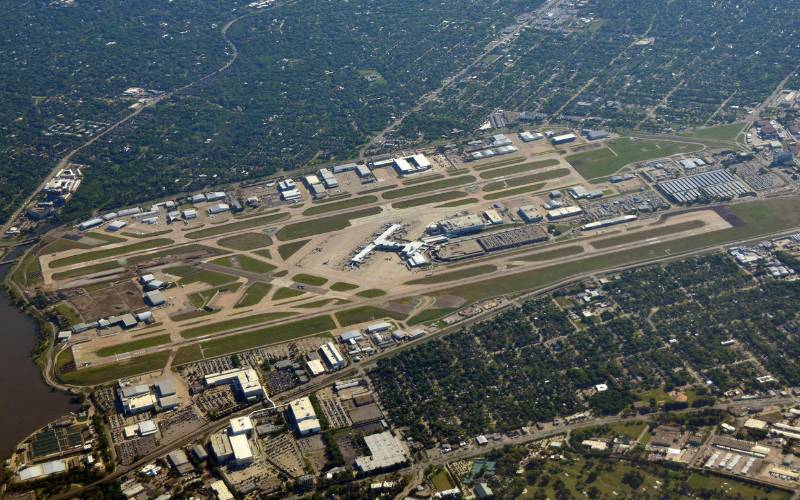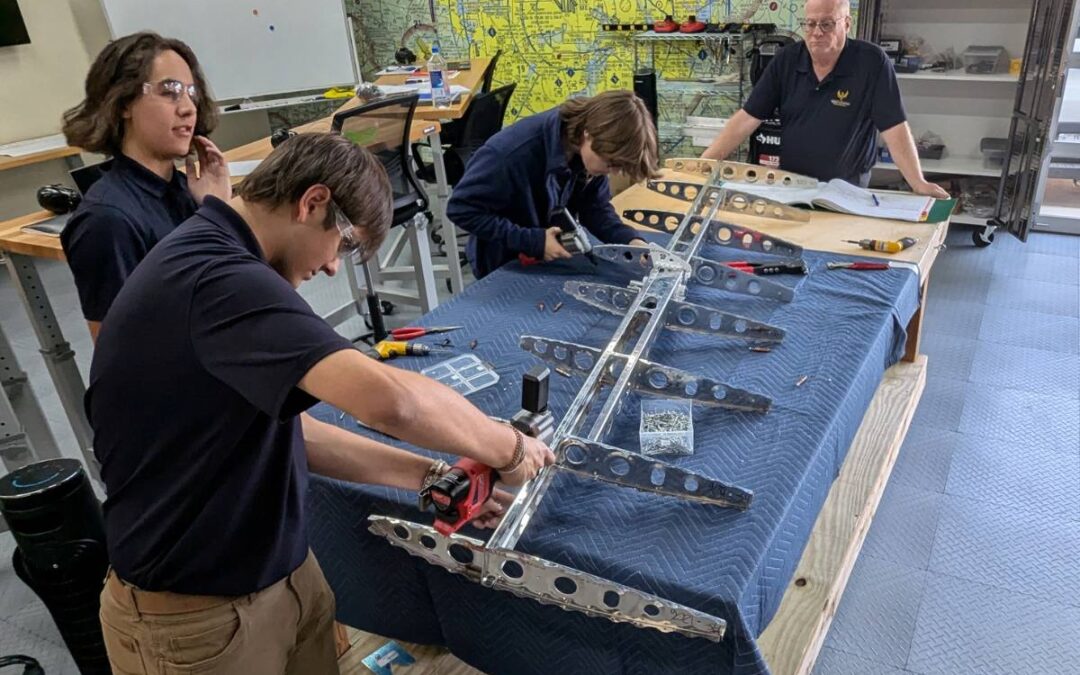Have you ever thought about who designs airports? Civil engineers play a central role in planning, creating, and remodeling airports. They work on everything from runways to terminals.
As a civil engineer focused on airports, you can shape the future of air travel.
You’ll tackle exciting projects like designing air traffic control towers and planning airport drainage systems. Your work will help millions of people travel safely and efficiently.
This career path offers many opportunities to grow. You might start as a civil engineer and later become an airfield engineer. Along the way, you’ll use math and science to solve real-world problems.
If you enjoy both technical skills and creative thinking, this could be the perfect career path for you.
Roles And Responsibilities of Civil Engineers
Civil engineers play a crucial part in airport design. They use their skills to create safe, efficient structures that can handle millions of travelers each year.
A Civil Engineers Primary Duties
Your main job as a civil engineer working on airports is to plan and oversee construction projects.
You’ll be a part of a team of people who design runways, taxiways, and terminal buildings. This involves careful planning to ensure these structures can support heavy aircraft and large crowds.
You’ll also work on drainage systems to prevent flooding. This is key for keeping runways dry and safe.
Another big task is designing parking lots and access roads. You need to make sure people can easily get to and from the airport.
Safety is always your top concern. You’ll run tests and checks to make sure everything meets strict aviation rules. You might use special software to model how structures will hold up under different conditions.
Day-To-Day Activities And Tasks
Your daily work will vary widely based on your role, but here are some common tasks:
- Meeting with airport officials to discuss project needs
- Creating detailed blueprints using computer-aided design (CAD) software
- Visiting construction sites to check on progress
- Solving unexpected problems that come up during building
- Working with teams of other experts like architects and environmental engineers
You’ll spend time in both an office and on-site.
In the office, you’ll do a lot of planning and design work. On-site, you’ll oversee construction and do inspections.
As you advance into management roles you might also handle budgets and timelines for projects. This means working closely with contractors to keep things on track.
Required Education And Skills
To become a civil engineer designing airports, you’ll need specific education and skills. Like other engineering roles, a strong background in math and science is essential, along with technical know-how and problem-solving abilities.
Necessary Educational Background for a Civil Engineer
You’ll need a bachelor’s degree in civil engineering to start your career.
This degree teaches you the basics of engineering principles, structural design, and project management. Many programs include courses on airport planning and design.
After getting your degree, you might want to earn a master’s in civil engineering with a focus on airport design. This can give you more specialized knowledge and make you stand out to employers.
To work as a professional engineer, you’ll need to pass the Principles and Practice of Engineering exam. This lets you take on more responsibility and sign off on projects.
Key Skills And Qualifications Needed
As an airport civil engineer, you’ll need a mix of technical and soft skills.
Strong math skills are a must, especially in geometry and calculus. You should be good at using computer-aided design (CAD) software to create detailed plans.
Project management skills are also crucial. As you advance in your career you’ll lead teams and coordinate with other professionals.
Problem-solving is key in this job. You’ll face unique challenges with each project, so being able to think creatively and find solutions is important.
Attention to detail is also vital. Small mistakes in your designs could have big consequences. You should also be comfortable working with building codes and safety regulations.

Get a Head Start by Attending A STEM High School
Going to a STEM high school can give you a head start in becoming a civil engineer.
These schools offer advanced math and science classes that prepare you for college-level work.
Many STEM high schools have engineering clubs or classes. These can introduce you to basic engineering concepts and software. You might even get to work on real-world projects.
Attending a STEM high school can also help you build a network of like-minded peers and mentors. This network can be valuable as you start your career in civil engineering.
Some STEM schools, like Rising Aviation High School, even offer specialized programs that give you a strong foundation in aviation in addition to STEM subjects.
Civil Engineer Career Path And Advancement
Civil engineers working on airport projects have exciting opportunities to grow their careers. You can advance through various roles and specialize in different aspects of airport design and maintenance.
Typical Career Progression of a Civil Engineer
You’ll likely start as an entry-level engineer, working on basic designs and calculations.
As you gain experience, you’ll move up to project engineer roles. Here, you’ll take on more responsibility for specific airport components.
With 5-10 years of experience, you could become a senior engineer or project manager. In these roles, you’ll oversee entire airport projects and teams.
Some engineers transition into consulting careers, where you’ll work on a variety of airport projects for different clients.
For those interested in the construction side, you might progress to become a construction manager. This role involves overseeing the actual building of airport facilities.
Opportunities For Advancement And Specialization
Airport engineering is already a specialization within civil engineering. However, there are still quite a few ways to specialize further within the airport engineering field.
Some options include:
- Runway design and maintenance
- Terminal building systems
- Air traffic control facilities
- Sustainable airport technologies
Many career paths are available in both the public and private sectors. You could work for government agencies, airport authorities, or private engineering firms. Each path offers unique challenges and rewards.
Continuing education and professional certifications can boost your career. Consider getting licensed as a Professional Engineer (PE) to open up more senior roles.
Challenges And Rewards of Being a Civil Engineer
Civil engineers who design and maintain airports face unique obstacles and enjoy special benefits. This career path offers a mix of technical challenges and fulfilling rewards.

Common Challenges Faced as a Civil Engineer in Aviation
Airport projects often involve complex construction and maintenance issues. You’ll grapple with geotechnical problems like soil and rock mechanics. These can affect runway stability and building foundations.
Safety standards are rigorous in airport design. You must ensure all structures can withstand earthquakes and the extreme weather that is more common in a project location.
Security concerns add another layer of complexity. You’ll need to integrate the latest security systems into your designs. This requires staying up-to-date with evolving technologies and threats.
Coordinating with multiple stakeholders can be tricky. You’ll work with government agencies, airlines, and local communities. Balancing their needs while meeting tight deadlines is often challenging.
Rewards And Benefits Of Becoming a Civil Engineer
As an airport civil engineer, you’ll enjoy a sense of pride in your work. Your projects have a tangible impact on millions of travelers. Seeing planes take off from runways you helped design can be incredibly satisfying.
The field offers excellent job security and growth potential. Airports are always expanding or upgrading, creating steady demand for your skills.
Your work directly contributes to public safety. By designing robust structures and systems, you help protect countless lives. This responsibility brings a deep sense of purpose to your career.
The variety in your work will keep things exciting. One day you might be analyzing soil samples, the next presenting designs to stakeholders. This diversity helps prevent boredom and burnout.
Future Outlook
The future of civil engineering in airport design and maintenance looks bright. New technologies and sustainability efforts are changing the field. Jobs for civil engineers at airports will likely grow in the coming years.
Trends And Future Developments In The Field
There are many trends that will have a big impact on airport design for civil engineers. Some of these trends include:
- Airports are getting smarter. You’ll see more use of sensors and data to improve airport operations. This means civil engineers will need to know about tech and data analysis.
- Green design is big. You’ll work on ways to make airports more eco-friendly. This includes using renewable energy and better waste management.
- Climate change is a key issue. You’ll design airports to handle extreme weather and rising sea levels.
- 3D printing might change how you build. It could make construction faster and cheaper.
- Drones will help you inspect and maintain airports. You’ll use them to check hard-to-reach areas safely.
- EVTOLs will also likely have a massive impact on air travel and there will need to be many infrastructure projects to support its growth.
Job Market Outlook And Demand
The job market for civil engineers in airports looks good. The American Society of Civil Engineers (ASCE) says we need to upgrade many U.S. airports.
As air travel continues to grow around the world there will be demand to renovate hundreds of airports across the US. These projects will keep civil engineers busy for many years to come.







